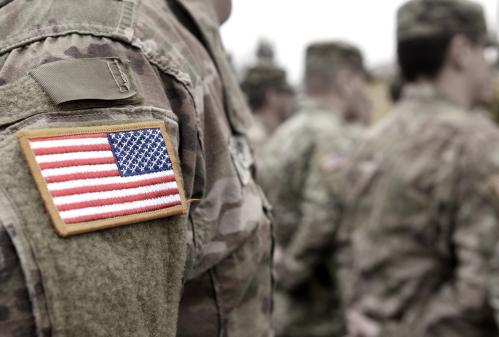Eat less sweets. Be a good father. Pray more often.
These were all New Year’s resolutions I made 12 months ago. I shouldn’t have needed the start of the new year to examine ways, both large and small, to become a better me, but that is the value of the tradition. But why should it only be for people? What sort of resolutions might the Pentagon make in the year ahead, to become a better Defense Department?
Keep the Training Focus in Afghanistan. In this now third troop surge in the last year, its easy to focus on what happens in battle. But defeating the Taliban, yet again, is far less important to our ultimate success than building up Afghan security forces to be able to do the job themselves. By the end of the year, the Afghan army should be built out from 90,000 to 134,000, its pay scales raised to aid retention, protective gear bought for each of its units, and enough Pashtun recruited to better local acceptance.
Sign A Tanker Deal, Yesterday. America’s ability to project global power depends on our air-to-air refueling capabilities. The defense leadership should care less whether the winner of this decade-long process is Boeing, Northrop, or even Spacely Sprockets, and more that first KC-135 was purchased in 1954. The continued deferral to replace it, driven by politics, will haunt our security for decades to come. Make a decision, any decision.
Plan B for Failure. Across the Pentagon are a series of acquisitions programs described as “too big to fail.” They are. In the air, land, and sea, we’ve painted ourselves into a corner with commitments to buying the equivalents of the Pontiac Aztek, originally supposed to appeal to all, but ultimately so over-engineered and over-priced, that it’s not a good option to anyone. As their prices go up further, and we are thus able to buy even less of them, its time to explore other options.
Act on Personnel Policy. DoD personnel policy was designed for the 1950s, with on and off-ramps to service that don’t match the current generation’s needs. Even worse, personnel costs are the fastest growing part of the Pentagon budget, squeezing spending out elsewhere. Rather than punting the problem once more, its high time to update the policy to allow more flexible, continuum of service options. This should also encompass finally acting on what we all know is coming, ending Don’t Ask Don’t Tell. It is a policy whose time has passed. Even more so, it wastes millions of dollars driving out servicemen and women, who have already proven their ability to do their job.
Better Support Transitioning Service Members. With the tough economy, those who have recently served in the active duty or National Guard and Reserves are being hit especially hard. The number of unemployed Iraq and Afghanistan veterans is now almost the same as the number of service members currently deployed in support of those two wars.
Kick Interagency Partners into Action. In June, President Obama made a historic speech in Cairo, laying out how to improve relations with the Muslim world. Not one of his 16 announced initiatives have been enacted since by State and USAID, and only 3 of the 16 are on pace to be met by the one-year anniversary. The State Department and CIA continue to hire, and even rehire, contractors that undermine counterinsurgency efforts with unprofessional conduct. And the President’s stated goal of creating a 25,000-person Civilian Assistance Corps, that could backstop federal agencies with volunteers with special skills, remains unimplemented. Why should these matter to the Pentagon? Because, as one Marine general put it, we can either act on our broader security efforts or plan on buying more bullets for the additional battles we will have to fight.
Obviously, these are not the only goals the Pentagon should set for the year ahead. And just like how eating less sweets was probably not the most important thing I could resolve to improve myself, they may not even encompass the most crucial changes needed. But perhaps what is most notable is that, just like the resolutions that most of us will make again this year, each links back to past commitments that have fallen by the wayside.
One study found that only 12% of New Year’s resolutions are actually followed through on. What will be the Pentagon’s success rate for 2010?
The Brookings Institution is committed to quality, independence, and impact.
We are supported by a diverse array of funders. In line with our values and policies, each Brookings publication represents the sole views of its author(s).



Commentary
Op-edNew Year’s Resolutions for the Pentagon
December 22, 2009